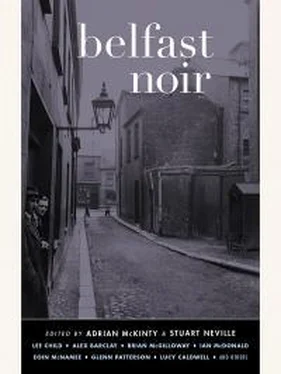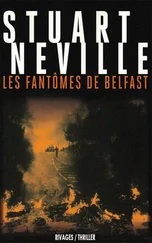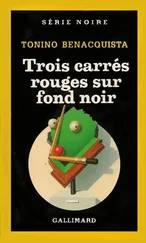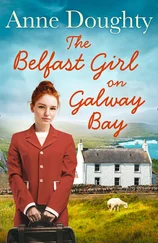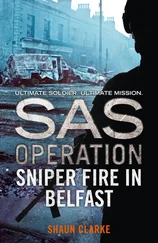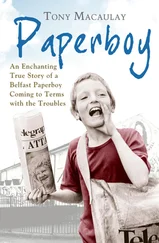Had Marty bought anything new? She looked along the line of mugs with tricolours and Sinn Féin and IRA logos and slogans and saw a bright green one with a harp that said: FENIANS . It brought back the memory of that terrible scene after that eejit of a cousin of his gave him a red mug for Christmas that said . . . what was it exactly? Oh, yes: I’m an unrepentant Fenian bastard . “I’m not, I’m not, I’m not a bastard!” Marty had screamed. “My ma was married to my da. Look at the photo on the sideboard.” “Sure it’s only a joke,” wee Conor had babbled, but a minute later he was on the ground with Marty biting and kicking him, and she trying to pull him off. That had ended in A&E and it was only because they were cousins that the police weren’t called.
Mrs. O’Gorman sighed, got up, smoothed the bedspread so there was no sign she’d been there, closed and locked the door, and got ready to go to the pound shop to buy new tea cups.
* * *
Marty had been ready an hour early, his trainers spotless and his jeans as creaseless as his new black T-shirt, which bore the legend, IRA Undefeated Army . When his uncle arrived, he was proudly shown the montage, which he viewed with apparent enthusiasm. Privately, he had misgivings. Why had Mick Collins been replaced with Liam Lynch? The war of independence would never have been won without Mick, and whatever you thought about the rights and wrongs of the treaty, Liam Lynch was an intransigent diehard who hadn’t done the country many favours.
Marty’s anxieties had ebbed on the journey to Castlederg. Uncle Joe had been on time, there wasn’t any mess in the car, the case containing the montage fitted neatly in the boot, he could see from the instrument panel that there was plenty of petrol and oil, the speed limit was adhered to strictly, and the traffic was so light that he nearly stopped worrying they might be late. He’d never been on such a long journey before, but the doctor had said he’d be okay if he took his medication. And he’d consulted Google Earth as well as his uncle, knew exactly the route they would take, what the village looked like, and where they’d be parking.
All the commemorations he’d been to before were in Belfast, so this was very different. He’d read online that the Prods didn’t want it. He couldn’t understand why. “It’s a mystery to me, Uncle Joe.”
As Joe O’Gorman knew all too well and was constantly tormented about, an awful lot of life was a mystery to Marty, and most mysteries couldn’t be explained to him. “You see, Uncle Joe, Seamus and Gerard weren’t trying to bomb Castlederg. The customs post they were targeting was three miles away. ” Having no sympathy anyway for those he considered Unionist cunts, O’Gorman wasn’t going to embark on the hopeless task of trying to explain to his nephew why the Protestant inhabitants of Castlederg—who had had a fair few fatalities in the past—might feel annoyed by an IRA commemoration, even of an event from three decades ago. He switched off as Marty began to recite detailed statistics about the frequency of Unionist parades and changing demographics in Castlederg. “So the Prods have parades all the time, Uncle Joe. So can’t they see it’s fair we should have some too?”
“They’re different, son.”
Marty’s face puckered. “I keep telling you I’m not your son, Uncle Joe. I’m your nephew.”
As he saw the anxiety in the boy’s big green eyes, O’Gorman cursed his own absentmindedness. Would he never learn to avoid the most obvious pitfalls? “Sorry, Marty. It’s just that I love you as much as I would if you were my son.” And, hastily, “Now what else have you learned about Castlederg and County Tyrone?”
As they drove into the village, Marty had almost finished reciting the dozens of names of Tyrone volunteers and dates of their deaths. O’Gorman parked, waited until he finished, and applauded.
“Do you think they’ll play the ballad?” asked Marty.
“What ballad?”
“‘The Ballad of Seamus Harvey and Gerard McGlynn.’”
“I never even heard of it.”
“It’s on YouTube. I’ve learned it. Can I sing it to you?”
O’Gorman listened patiently to Marty’s quavering rendition of what seemed like a tuneless dirge. “Very nice,” he said.
“The song said they died trying to free our country, Uncle Joe. That was a long time ago. Why isn’t our country free yet?”
“We’ll talk about that afterward, Marty. Now we should get going or we’ll be late joining the procession.”
* * *
A few months later, after another outing with his nephew, O’Gorman sat up in bed one morning. “I wish to God wee Marty had never got interested in Republicanism. It doesn’t suit people with literal minds when we’re at peace.”
Paddy McCarthy turned over lazily. “Okay, tell me. Was there an outburst?”
“No. He’s getting better in a lot of ways. For instance, he’s learned many of the tunes the bands play, so the familiarity helps him deal with the noise and the drumming. And if I’m there, he’s okay with crowds. And though he gets upset that people aren’t properly dressed or don’t walk in time to the music, he doesn’t shout at them.”
“If that’s what he wants, Joe, maybe he should become an Orangeman.”
O’Gorman’s playful cuff took both their minds off the subject, which they returned to much later, over a couple of pints in a discreet corner of the local pub.
“So there were no disasters, but he’s getting fanatical, and I blame myself for getting him involved in the first place.”
“Why did you?”
O’Gorman took a reflective swig of Guinness. “I wanted to spend more time with him. The job takes me to lots of these events, and he could come with me. The lad is too much alone.”
“You’re very close for an uncle and nephew.”
“I was always fond of the wee lad, but when my brother was dying, I promised him I’d do my best to be a father to him.”
McCarthy picked his words carefully. “He’s a bit of a handful, though. Must be tough.”
“He’s that and all, but you couldn’t but love him. And he’s the nearest I’ll ever have to a son.”
McCarthy checked there was no one within earshot. “You’re not planning on doing an Elton John, then? No surrogate mother to provide Joe O’Gorman with a kid?”
“Jaysus, Paddy, the lads would stone me to death. That’s if their mammies didn’t get there first.”
“So your Marty doesn’t know about you.”
“Not him, not his ma, not his aunt. And I’m not planning on coming out soon. Not that it’s my biggest worry. What’s really bugging me is that the wee fecker seems to be turning into a dissident.”
“How do you mean?”
“He’s getting hung up on Irish freedom. He keeps asking why the IRA stopped before we got it.”
McCarthy yawned. “You know I’ve no interest in this stuff, Joe. It’s just history to me. I don’t care what you did twenty years ago. I don’t even care what you believe.” He left the table and went to the bar. After he had come back with the pints and sat down he looked at O’Gorman. “You’re upset, aren’t you?”
“Worried.”
“Because he’s going on about Irish freedom. Isn’t that what your crowd have always gone on about? What’s different?”
“He’s wearing a T-shirt that says, Britain Out of Ireland . He got that off a dissident website.”
McCarthy shook his head. “But isn’t Brits out what you want?”
“They believe in achieving that through armed struggle. We want it to happen through the ballot box.”
“So they’re doing what you used to do.”
“Yes, but circumstances have changed. We’re in government and they’re messing things up.”
Читать дальше
